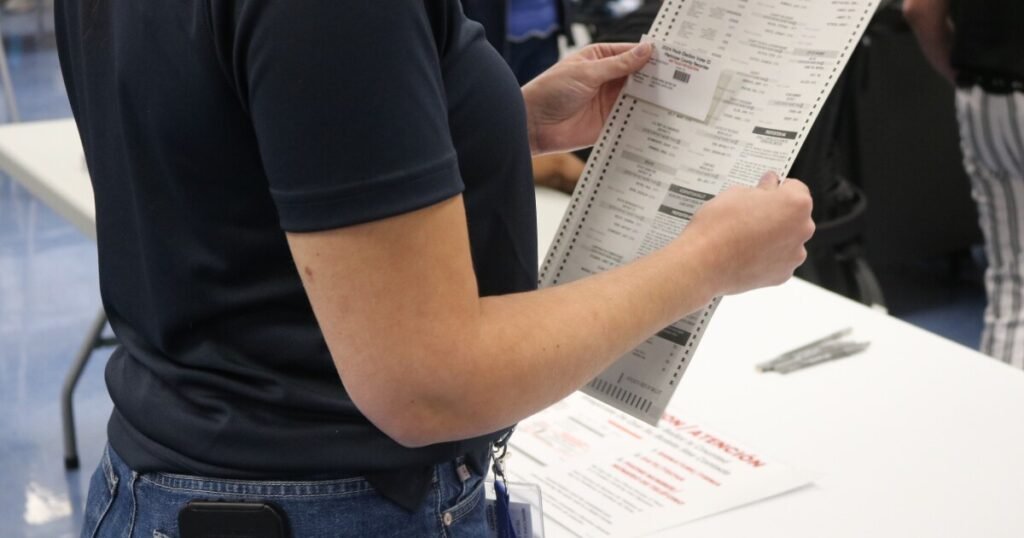Maricopa County Judge Rules Against Public Access to Voting Records
A Maricopa County judge has determined that citizens are not entitled to examine cast voting records.
These records, created by vote counting machines, detail various aspects of how individuals voted, including whether their vote was counted and other related information. However, they do not include personal identifiers such as voter names. Still, there are instances where the information could potentially be pieced together to identify voters.
Lawrence Hudson, a Republican candidate who lost in the Legislative District 12 general election last year, brought a lawsuit aiming to compel the county to make cast voting records accessible for the 2024 election.
According to reports, both Maricopa and Pima counties have previously released cast voting records in recent years. Analysts have looked into election results, particularly the phenomenon of voters who chose candidates from both parties, yet pointed out that inconsistent data can be challenging for the average person to interpret.
However, the county ultimately shifted its position. This change seems tied to the rise of requests from people attempting to validate unsubstantiated allegations of election fraud.
In court, Maricopa County maintained that state law barred the release of cast voting records.
Judge Melissa Julian concurred, stating in a decision made last week that Arizona’s election laws exempt these records from public disclosure under the state’s public record regulations.
She noted the importance of safeguarding both electronic voting data and corresponding images, ensuring they remain as protected as traditional paper votes.
Julian explained that the cast vote record (CVR) reflects how each vote was counted, generated from a significant number of voters. Consequently, it is specifically protected under Sections 16-625 and cannot be made public through standard record requests.
The judge also decided that the county should not disclose any past records. While previous CVRs from the 2020 elections had been shared and were available through third-party sources, Julian emphasized that any prior disclosures made against the law do not eliminate its enforceability.
In a similar vein, Judge Joseph Mikitish previously used the same law to dismiss a lawsuit from a Tucson election analyst seeking access to voting images after the county denied a public records request for those images and related voting data. This ruling was affirmed by an Arizona Court of Appeals panel.






